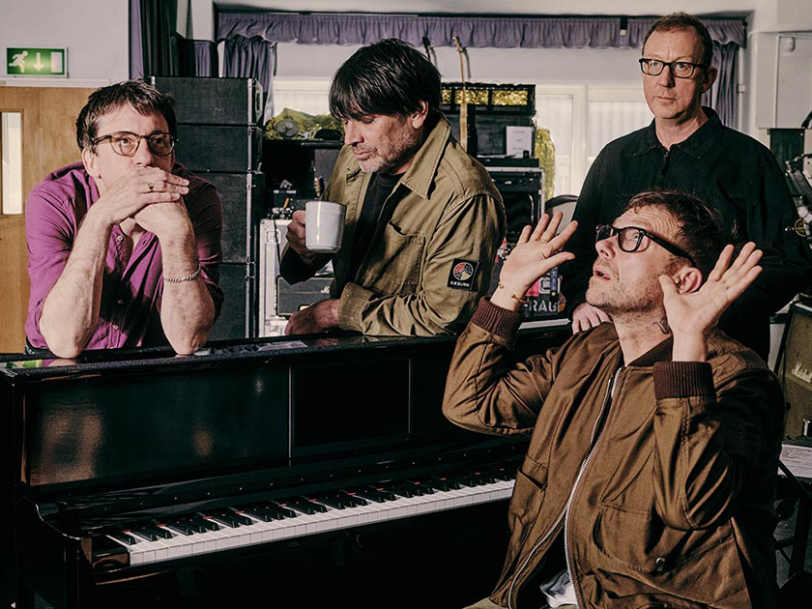The Ballad
In a history of bold-move opening songs, Blur kick off The Ballad Of Darren not with a reminder of their chart-storming indie-pop days (think Parklife’s era-defining opener, Girls & Boys) or a throwback to the alt-rock reinvention that heralded their self-titled fifth album (now what you done, Beetlebum?), but with a midtempo torch song. Don’t be fooled by the low-key drum machine that starts things off – The Ballad simply soars, Graham Coxon’s cascading guitar lines and strings from Damon Albarn’s regular collaborators The Demon Strings (Gorillaz, The Good, The Bad & The Queen, The Magic Whip) combining in a way that recalls the cinematic beauty of Parklife’s To The End.
According to Albarn, the Darren of the album’s title (Darren “Smoggy” Evans, Albarn’s long-serving security guard) had been nagging him to finish the song for 25 years – and with good reason. In twining an undefined loss (“I just looked into my life/And all I saw was that you’re not coming back”) around a reflection on music as an unstoppable life force (“Oh, can’t you see, when the ballad comes for you/It comes like me”), Albarn faces up to “a full-on assault” of the two things that sustain him: emotional honesty and songwriting. Listen closely: when Coxon joins in on backing vocals (“We travelled around the world together”), you can hear the sound of hearts breaking from here to Antarctica.


